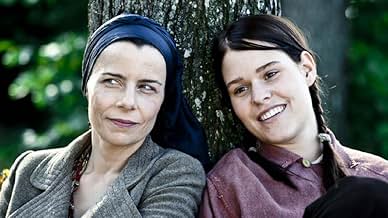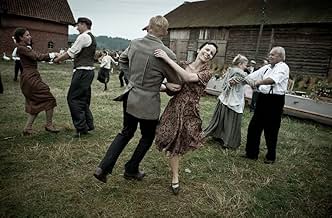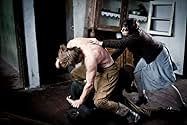"War is like a fire," it is said in The Art of War "if you do not put it out, it will burn itself out." The fire of World War II smoldered in Masuria, in the northeast corner of Poland, long after the war ceased. Life was especially hard for innocents like Rose, a German speaker whose soldier husband died in battle. Victorious Russians and Poles treated such women as conquered enemies. Alone on a potato farm, Rose is on the edge of death when Tadeusz encounters her. Tadeusz, who deserted from the Polish Home Army when his wife was brutally murdered, is in no mood to see another woman suffer like this. He stays to protect Rose as best he can, but also to tend to his own broken heart. Rose and Tadeusz swim in a pristine lake in the forest, relive happy moments from the past, plant potatoes and attempt to mold a bright future from the ashes, yet the flames of war, violence and abuse are not so easily snuffed out.
Rose is a determined character who refuses to give up despite extreme hardship and abuse. She radiates hope amid despair. So does Tadeusz. Together they embody goodness and sparks of renewal in the world even at its bleakest moments. The film tugs at your emotions. Dark and light moods are heightened as film images shift between black and white and color. It is very disturbing yet illuminating to better understand the plight of Masurians, caught between warring powers. Some of my ancestors, German speakers and Russian citizens in what is now Poland, came from the area. The acting is splendid. World premiere seen at the Toronto international film festival.


































